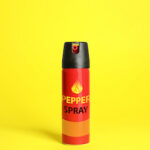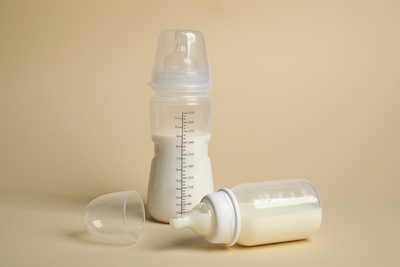When it comes to choosing the perfect baby bottle for your little one, the decision might not be as clear-cut as you’d think. With numerous options available, the choice between glass and plastic bottles is a topic of much debate among parents. As you weigh the pros and cons of each, it is essential to consider factors such as safety, durability, and ease of use. In this article, we will delve into the advantages and disadvantages of glass and plastic baby bottles to help you make an informed decision.
Safety
- Glass Bottles
Glass baby bottles are often considered safer than their plastic counterparts. They are free of potentially harmful chemicals like bisphenol A (BPA), phthalates, and PVC, which can leach into the contents of the bottle. These chemicals have been linked to various health issues, including hormonal disruptions and developmental problems in children.
In addition, glass bottles do not absorb odours, colours, or flavours, ensuring that your baby’s milk remains uncontaminated.
- Plastic Bottles
Over the years, concerns about the safety of plastic baby bottles have been raised due to the presence of harmful chemicals. However, many manufacturers now produce BPA-free and phthalate-free plastic bottles, which are considered safe for use.
Plastic bottles made from polypropylene (PP) or polyethersulfone (PES) are considered the safest options. These materials are sturdy and do not contain harmful chemicals. It’s crucial to choose bottles that are labeled as BPA-free and phthalate-free and to replace them regularly to avoid any potential risks.
Durability and Lifespan
- Glass Bottles
Glass bottles are known for their durability and longevity. They can withstand high heat and can be safely sterilized using boiling water or a sterilizer without losing their integrity. Furthermore, glass bottles are less likely to degrade over time, which means they can be used for multiple children without compromising quality.
However, glass bottles are more prone to breakage than plastic bottles. To counter this, many glass bottles now come with silicone sleeves to provide extra protection and grip. Even with these precautions, you should always be cautious when handling glass bottles to prevent accidents.
- Plastic Bottles
Plastic bottles are lightweight and less likely to break when dropped, making them a popular choice for parents who want a more durable option. However, plastic bottles tend to degrade over time, especially when exposed to high heat during sterilization or when washed in a dishwasher. This degradation can lead to scratches and cracks, which can harbour bacteria and create safety concerns.
For this reason, plastic bottles should be inspected regularly and replaced when signs of wear and tear become evident. This means that, in the long run, plastic bottles may be less cost-effective than glass bottles.
Ease of Use
- Glass Bottles
Glass bottles are generally heavier than plastic bottles, which can make them more challenging to handle, especially for younger children or during nighttime feedings. However, they are often considered easier to clean due to their non-porous surface, which prevents residue buildup and staining.
- Plastic Bottles
Plastic bottles are lightweight and easy to hold, making them a popular choice for parents and caregivers. Additionally, their flexibility allows for a more comfortable grip for both you and your baby.
However, cleaning plastic bottles can be more challenging as they are more prone to staining and residue buildup. Scrubbing too hard can cause scratches, which can harbour bacteria. To maintain cleanliness, it’s essential to use a soft brush or sponge when cleaning plastic bottles and replace them regularly.
Environmental Impact
- Glass Bottles
Glass bottles have a lower environmental impact than plastic bottles. They are made from natural materials, and their production process is more eco-friendly. Glass can also be recycled indefinitely without losing quality or purity, making it a more sustainable option. Additionally, the durability and longevity of glass bottles mean that fewer replacements are needed, reducing waste and consumption.
- Plastic Bottles
Plastic bottles are derived from non-renewable resources like petroleum, which contributes to environmental degradation. The production process for plastic bottles also generates more greenhouse gas emissions compared to glass bottles. Moreover, plastic bottles take hundreds of years to decompose in landfills, posing a significant threat to the environment.
While some plastic bottles can be recycled, the process is less efficient than glass recycling, and not all types of plastics can be repurposed. Furthermore, the short lifespan of plastic bottles means they need to be replaced more frequently, leading to increased consumption and waste.
Cost
- Glass Bottles
Glass bottles are generally more expensive upfront than plastic bottles. However, their durability and longevity can make them more cost-effective in the long run, especially if you plan to use them for multiple children or pass them on to friends and family.
- Plastic Bottles
Plastic bottles are often cheaper upfront, which can make them an attractive option for budget-conscious parents. However, their shorter lifespan and the need for regular replacements can add up over time, making them potentially less cost-effective in the long run.
The decision between glass and plastic baby bottles ultimately comes down to personal preference and priorities. Glass bottles offer safety, durability, and a lower environmental impact, while plastic bottles provide lightweight convenience and a lower upfront cost. Whichever option you choose, it is crucial to prioritize your baby’s safety by selecting BPA-free and phthalate-free bottles and regularly inspecting them for signs of wear and tear.
By carefully considering the pros and cons of glass and plastic baby bottles, you can make a well-informed decision that best suits your needs and gives your little one the best start in life.










